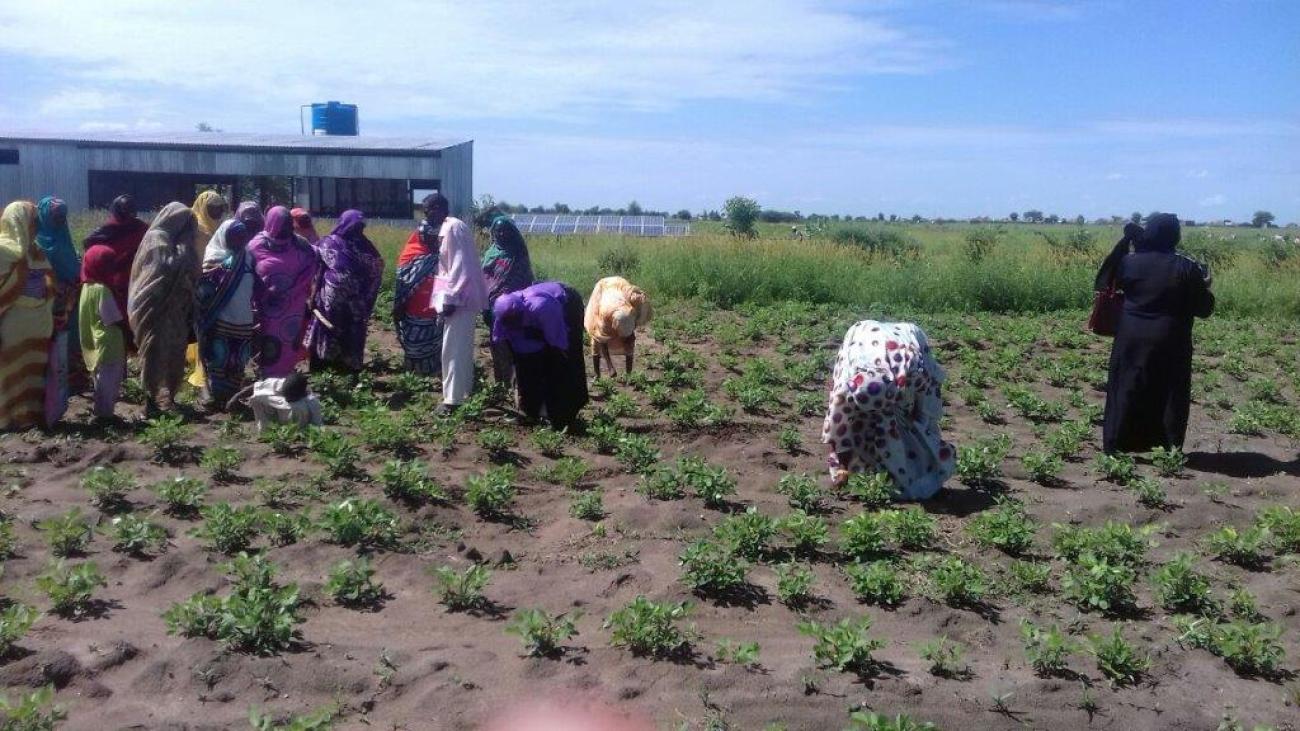Rural Sudanese women have little access to land in terms of tenure and ownership, thus depriving many to uptake farming as a means of income generation. The customary law in rural areas is taken more often into consideration than the statutory law, which does not object to women’s land ownership. Although some women do undertake farming, it is a general norm that the men of their household market any farming production, hence taking charge of the generated income.
FAO, UN-Habitat, World Bank and EACOM, with support from the Ministry of Agriculture, piloted a project to provide 30 landless women with a piece of land in Salha village, which is 5 kilometres from Al Damazine. The land allotted to this project is about 10 feddans, in which two feddans are used by the Forest Corporation for seedlings production, with the rest designated for farming by the 30 women. The women formed an association although they predominantly come from three different social groups that include internally displaced persons represented by Aroma community, farmers (settlers) represented by the Salha community where the farm is, and nomads represented by El Fardous community. These communities usually do not mix with each other and tensions do sometimes arise.
“My life has changed after working for the Salha Farm” said Um Hani Ibrahim, who is one of the 30 women. “Although my family was not convinced at the beginning, especially my husband, I insisted to participate until I gained income” continued Um Hani who now feels “empowered” because for the first time in her life she is making an income.
The association formed by the women gave them the legal capability to have a bank account so that they can deposit their earnings from the sold produce. The association also enabled them to get the exemption of land use for the long term, which made it possible for them to have an entity that is socially acceptable amongst their communities.
The farm was empowered with a solar irrigation system installed by UN-Habitat to increase cost-effective productivity, in addition to an elevated tank for environmentally friendly use of powered irrigation. FAO provided the seeds in the early stage of the farm and the Sudan Peace Building and Development Project implemented the capacity building, coordination and supervision. The Ministry of Agriculture provided the technical staff and the expertise required to work with the women in managing the entire farm themselves.
So far, the women have been able to produce seven cash crops, namely okra, cowpea, sorghum, potatoes, groundnuts, eggplants and cucumbers, which were in high demand in the local markets.
“Now I earn additional money from my own hard work and I cover the extra household expenses, in addition of course to buying things for myself, which was not possible before” says Huda Abdel Rahman who farms at the Salha farm.






